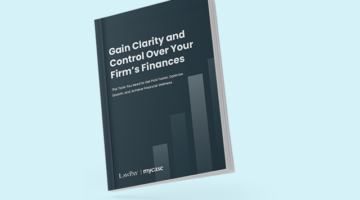 This week marks the final week of classes for the Fall semester at Vanderbilt Law. While students are currently toiling away outlining and preparing for exams, the end of the semester often makes me think of the new slate of classes ahead. Whether it was in college, graduate school, or law school, I always thoroughly enjoyed clicking through a course catalog and seeing the range of subjects that I could tackle. “You mean there’s one course on Russian history up to 1801 and then a whole separate course on Russian history since 1801?”
This week marks the final week of classes for the Fall semester at Vanderbilt Law. While students are currently toiling away outlining and preparing for exams, the end of the semester often makes me think of the new slate of classes ahead. Whether it was in college, graduate school, or law school, I always thoroughly enjoyed clicking through a course catalog and seeing the range of subjects that I could tackle. “You mean there’s one course on Russian history up to 1801 and then a whole separate course on Russian history since 1801?”

While law school may not provide students the opportunity to jump between courses in economics, gender studies, and astronomy the same way one can in college, there are still scores of interesting classes, each of which provides an insight into a particular aspect of the law.

Take Control Of Your Firm’s Finances With Tools Built For Success
Position your firm for long-term growth with better financial visibility and control. Learn how to track performance, manage spending, and plan strategically—download the full e-book now.
As I have mentioned before in this space, when working with students over the course of three years, I am often asked questions that go beyond basic matters of résumé format or cover letter content. One of the more frequent inquiries after the completion of 1L is “what classes should I take?”
There are two primary schools of thought when it comes to this question, with some overlap. The first is that students should take as many “core” classes as can fit into their schedules. These are the classes a non-lawyer would think of when conjuring up an image of the law school curriculum, e.g., Corporations, Tax, Evidence, Wills & Trusts, etc. Perhaps more importantly, these are also the subjects likely to be on the bar examination. The other line of thinking is that students should take what interests them. At the end of the day, it is their money — or really, all of our tax dollars doled out to students via a student loan system that is overwhelmingly federal . . . at least for now — so why sit through classes focusing on areas of the law which hold little interest to you, especially in a world where bar preparation courses exist?
On which side of this divide do I fall? Well, here’s a look at some of the courses I took as a 2L and 3L: “Presidential Powers, War, and Foreign Affairs,” “The Law of the Welfare State,” “Blasphemy in America,” and “The 9/11 Victims Compensation Fund.” Granted, mixed into those years was also Evidence, Federal Courts, Criminal Procedure, and First Amendment, but I saw my time in law school as an opportunity to explore a vast array of subjects, regardless of whether or not they would arise on a regular basis in practice. With the benefit of hindsight, there are some more mainstream courses I wished I had taken. As the father of two children, it would be nice to better understand the intricacies of wills so I could craft a document that best protects their future. Federal tax would be of particular utility in fully understanding this current political moment in which the President of the United States seemingly engaged in various tax schemes of dubious legality; not to mention it would come in handy every April. But each seminar or non-mainstream course I took provided me with a wealth of insight and knowledge that I would not trade away.
My personal preferences aside, there is also an employment angle for students to consider. Some argue that a course load that is totally, or at least heavy tilted, toward tentpole courses will make a student more attractive to employers. I am a bit dubious of such claims. In the context of Biglaw, since the vast majority of entry-level attorneys are hired through the 2L Fall Recruiting Cycle, at best, a student might have been able to have completed an elective or two by the time they meet with employers. Whether that elective was Corporations or an Environmental Law seminar is going to be far less important than other data points such as your 1L academic performance and any relevant work experience.

4 Ways That Lexis® Create+ Delivers Personalized Legal Drafting
Lexis Create+ merges legacy drafting tools with AI-powered assistance from Protégé and secure DMS integration enabled by the Henchman acquisition.
For those students tackling the law firm market as 3Ls, or even just later in the 2L calendar, some employers will want to see that you are taking on the big law school courses, but a more effective strategy is to develop a niche. Biglaw employers in the market for 3Ls are often looking for someone to plug into a particular practice area, while smaller firms often specialize in a certain area of the law. An employer looking for a real estate attorney is likely, all other things being equal, to hire a candidate who has taken a range of courses dealing with property and land use than someone who has taken Administrative Law or Copyright.
For public service positions, students can best position themselves by using their electives to demonstrate a commitment to helping various populations, often through clinics or externships. In addition, for non-traditional areas of the law, employment can often stem more from contacts than any other single factor. Seminars taught by visiting faculty or adjuncts currently in practice can help develop those contacts in a way few other courses can. If you desire a clerkship, take as many litigation-focused courses as possible. Not only can it make you a more attractive clerkship candidate, but it can make for a smoother transition from law student to clerk.
For most law students, their three years in law school represent the last time they will be in a formal academic setting. The last opportunity in which one’s only job is to learn about a variety of topics from some of the most intelligent people academia has to offer. I am hard pressed to tell students they must spend a portion of that time taking Securities Regulation if they have no interest in that area of the law. Take what interests you while being conscious of how to best situate yourself for employment if you are still on the job hunt. And if it is a subject that will be on the bar exam? Well, that is why BarBri exists.
On a side note, if you are looking for other avenues by which to consuming my musings, the wonderful folks at 3 Geeks and a Law Blog recently invited me on a podcast to talk about professional development in law school. Give it a listen.
Nicholas Alexiou is the Director of LL.M. and Alumni Advising as well as the Associate Director of Career Services at Vanderbilt University Law School. He will, hopefully, respond to your emails at [email protected].